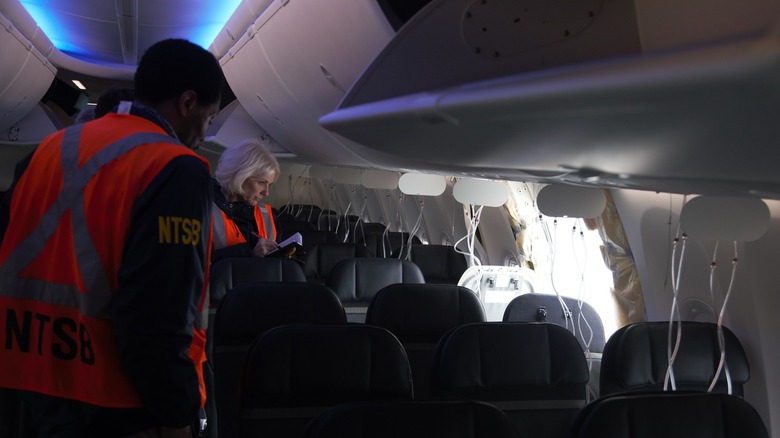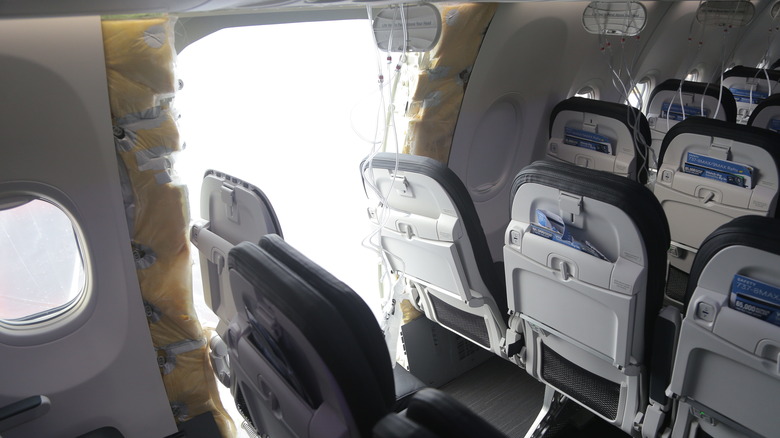NTSB Finds Boeing 737 Max 9 May Have Lacked Critical Door Bolts
The National Transportation Safety Board (NTSB) has submitted a preliminary investigation report on the door blowout accident involving a Boeing 737 Max 9 earlier this month. NTSB investigators found that crucial bolts were missing from the Mid Exit Door (MED) plug. The report indicates that the missing bolts could be linked to faulty repair work involving five rivets roughly six months ago.
"Overall, the observed damage patterns and absence of contact damage or deformation around holes associated with the vertical movement arrestor bolts and upper guide track bolts in the upper guide fittings, hinge fittings, and recovered aft lower hinge guide fitting indicate that four bolts that prevent upward movement of the MED plug were missing before the MED plug moved upward off the stop pads," says the report. Notably, the bolts secure the MED plug in place, which in turn is not supposed to be opened except for inspection and maintenance work.
In the case of the Alaska Airlines incident, it blew off, leading to a rapid decompression in the cabin, forcing the crew to declare an emergency and execute emergency maneuvers. The NTSB's team is still looking into the documentation that was referenced to approve the MED plug restoration work focused on the rivets. There was also an issue with the tolerance of seal flushness, however, it was deemed a minor flaw that didn't require any specific work and was eventually classified as structurally and functionally acceptable. The report further adds the lower attach bolts in the MED plug assembly showed signs of visible fracture.
What lies ahead for Boeing?
The NTSB is awaiting further interviews and documents while it continues to assess the damaged left MED plug that the agency obtained from a person's backyard after it fell from the Boeing 737 Max airplane. However, the MED plug itself was intact and seemed to have been assembled with proper engineering guidelines. In the wake of the preliminary investigation, Boeing has also issued an official statement, admitting that it is responsible for the events that led to Boeing's 737 Max flights being grounded.
"An event like this must not happen on an airplane that leaves our factory. We simply must do better for our customers and their passengers," Boeing CEO Dave Calhoun said. To ensure that no similar accidents happen in the future, Boeing says it has started checking the door plug assembly and similar parts more carefully at its suppliers' factories and at Boeing's production facility. Additionally, the company says it has installed signs and made appropriate rules to keep track of when the door plug is opened or taken off in the factory, making sure it's put back and checked before the plane is sent out.
Notably, the company says it is opening its facility for all customers to conduct their own independent reviews of the 737 series airplanes. Additionally, the company says it is tightening the inspection norms across the supply chain and also putting in place an independent assessment to look into the safety and quality management pipeline by vetted experts for all commercial Boeing airplanes. Boeing now has a long way to go at instilling customer faith in its flights, especially because many travelers are now excluding the Boeing 737 Max 9 airplanes from their travel plans.

